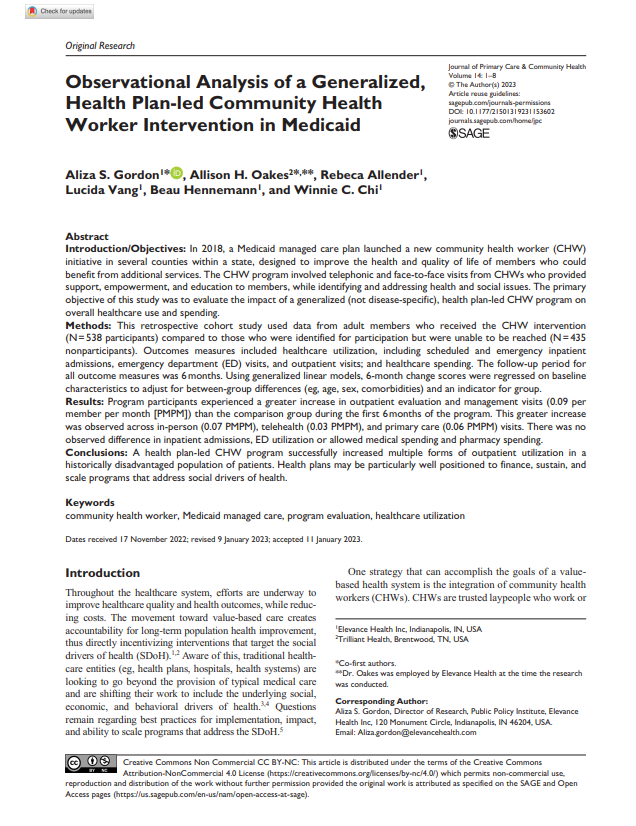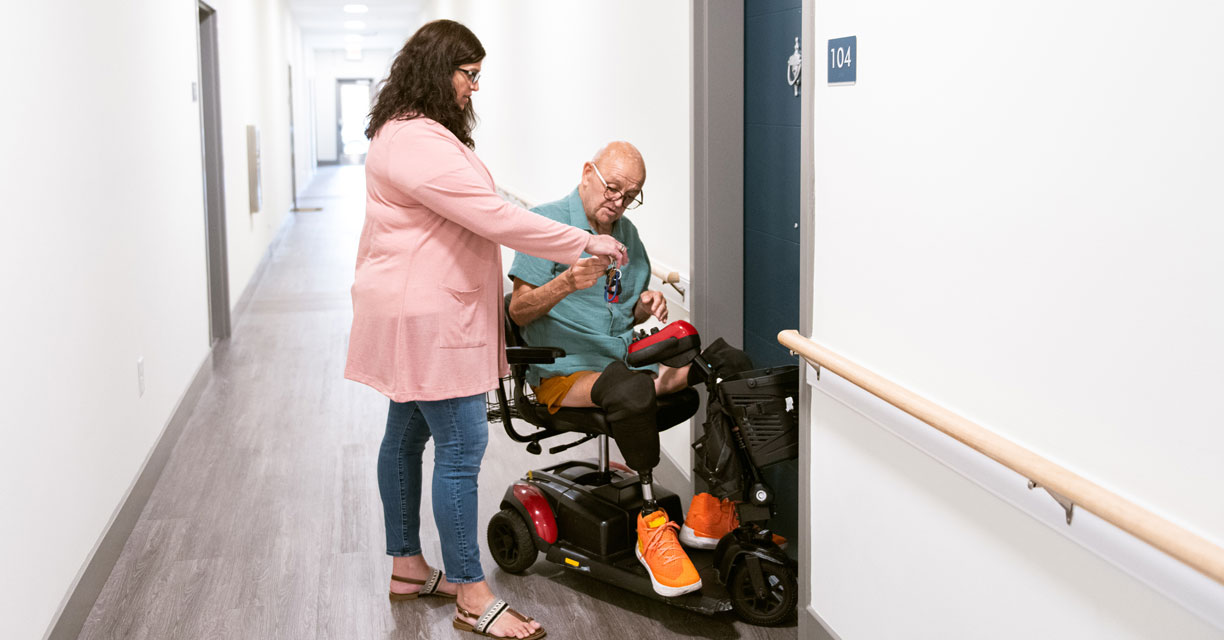Headline
Medicaid health plan-led community health worker program showed moderate evidence for increased outpatient care and primary care use.
Context
Interventions that address health-related social needs (HRSN) are increasingly important as the health care system moves toward value-based care models to reduce health care costs while improving quality and outcomes. Community health worker (CHW) programs have shown to improve chronic disease outcomes, often by addressing HRSN or connecting patients to services and programs to meet their HRSN. However, CHW programs are often focused on highly specific patient populations or narrow clinical outcomes, which limits the literature on their impact on general health care utilization and spending. This retrospective cohort study examines the impact of a Medicaid health plan-led CHW initiative, designed to improve the health and quality of life of Medicaid members broadly, on overall health care utilization and spending.
Findings
The authors used claims-based medical and pharmacy data from Medicaid insured members who received the CHW intervention and compared their outcomes to members who did not participate in the intervention. Overall, the CHW intervention was associated with increased outpatient use including in-person, telehealth, and primary care visits. Increased telehealth and primary care use was sustained for 18 months post the CHW intervention. The study found moderate evidence demonstrating a six-fold increase in telehealth use for members who received the intervention compared to those who did not participate. While the CHW intervention was not associated with a reduction in overall spending, there was also no increase in medical or pharmacy spending, despite the marked increase in use of outpatient care, which may indicate the cost-effective nature of these services.
Takeaways
The increase in outpatient care use, particularly primary care, coupled with no increase in medical or pharmacy spending for patients who participated in the CHW intervention provides moderate evidence to support the use of CHWs more broadly within the Medicaid population. Sustained engagement in primary care has been shown to support early detection and treatment of disease, chronic disease management, and access to preventive care, which can have long-term, positive impacts on overall health outcomes and subsequently health care utilization and costs.




